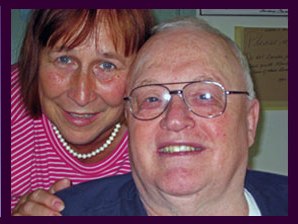Dr. Ethelle G. Lord
Long-term inpatient care is a reality with many baby-boomers living with Alzheimer’s. We know a cure is really not just around the corner for Alzheimer’s, it seems reasonable to find better ways for our health care workforce, including doctors in the emergency rooms and hospital staff, to strive to integrate various sub-specialties, address future trends and current challenges they are facing in treating patients diagnosed with Alzheimer’s.
Tip #1: One of the first assessments done by an admission nurse or an emergency room doctor is the level of pain. Doctors unknowingly ask a patient with Alzheimer’s to determine their level of pain by asking “from 1 to 10, 10 being the highest level of pain, what is your level of pain right now?”
These types of questions require reasoning and judgment, two cognitive functions that are impaired in a person with Alzheimer’s. Only open-ended questions make any sense, if at all, for an individual with Alzheimer’s. That is why the family caregiver or professional caregiver is the one that is best able to respond to such medical questioning.
Tip #2: Delirium is a serious condition that often afflicts the individual with Alzheimer’s. The more the environment is familiar, having a family caregiver present at all times, the lower the risk of delirium or disorientation. Having someone there for the individuals is comforting.
For example, a peaceful environment is everything to an individual with Alzheimer’s. Their sleep pattern is often reversed (Sundown syndrome) and providing them a sense of time/location is meeting some of their basic and higher level needs. Open-ended questions are the only ones that make any sense to a person with Alzheimer’s because they have extreme difficulty in completing a thought or sentence, let alone ask for basic things such as food, bathroom, or pain.
Tip #3: Doctors want to help and often will prescribe medications proven to be harmful to an individual with Alzheimer’s. We now know that any form of sedatives and anti-anxiety medications compromises the health of an individual with Alzheimer’s. Essential oils have been proven to have positive medicinal properties. According to Buckle (1999) and Burns, et al (2011), essential oils that have pharmacologically active ingredients may negate or enhance the effects of orthodox drugs. Because essential oils contain high percentages of phenols, they should never be used undiluted. Only healthcare personnel who have completed a clinically-based course should be allowed to administer essential oils to treat certain behaviors or conditions.
Remembering4You (dot) Com defines an Alzheimer’s Friendly Healthcare Facility (hospital, nursing home, or assisted living facility) as one who has adopted the Caregiver Partnership Agreement Program™ and/or has a certified Alzheimer’s coach on staff. Baby boomers and the nature of Alzheimer’s are demanding Alzheimer’s friendly healthcare. For more information contact info@remembering4you.com today.
References for this article:
Buckle, J. (1999). Use of aromatherapy as a complementary treatment for chronic pain. Alternative Therapies in Health and Medicine, 5(5). Retrieved July 16, 2012 from ProQuest Database.
Burns, A., Perry, E., Holmes, C., Francis, P., Morris, J., Howes, M.-J., Chazot, P., Lees, G., & Ballard, C. (2011). A double-blind placebo-controlled randomized trial of Melissa officinalis oil and Donepezil for the treatment of agitation in Alzheimer’s disease. Demented Geriatric Cognitive Disorder, 31: 158-164. Retrieved July 11, 2012 from ProQuest Database.
About the author: Dr. Ethelle G. Lord, former president of the Maine Gerontological Society of Maine, runs Alzheimer’s coaching and consulting business RememberingforYou.com. She is married to Maj. Larry S. Potter, USAF retired, and lives in Mapleton. Dr. Lord is available for presentations, training, and Alzheimer’s coaching/consulting.
